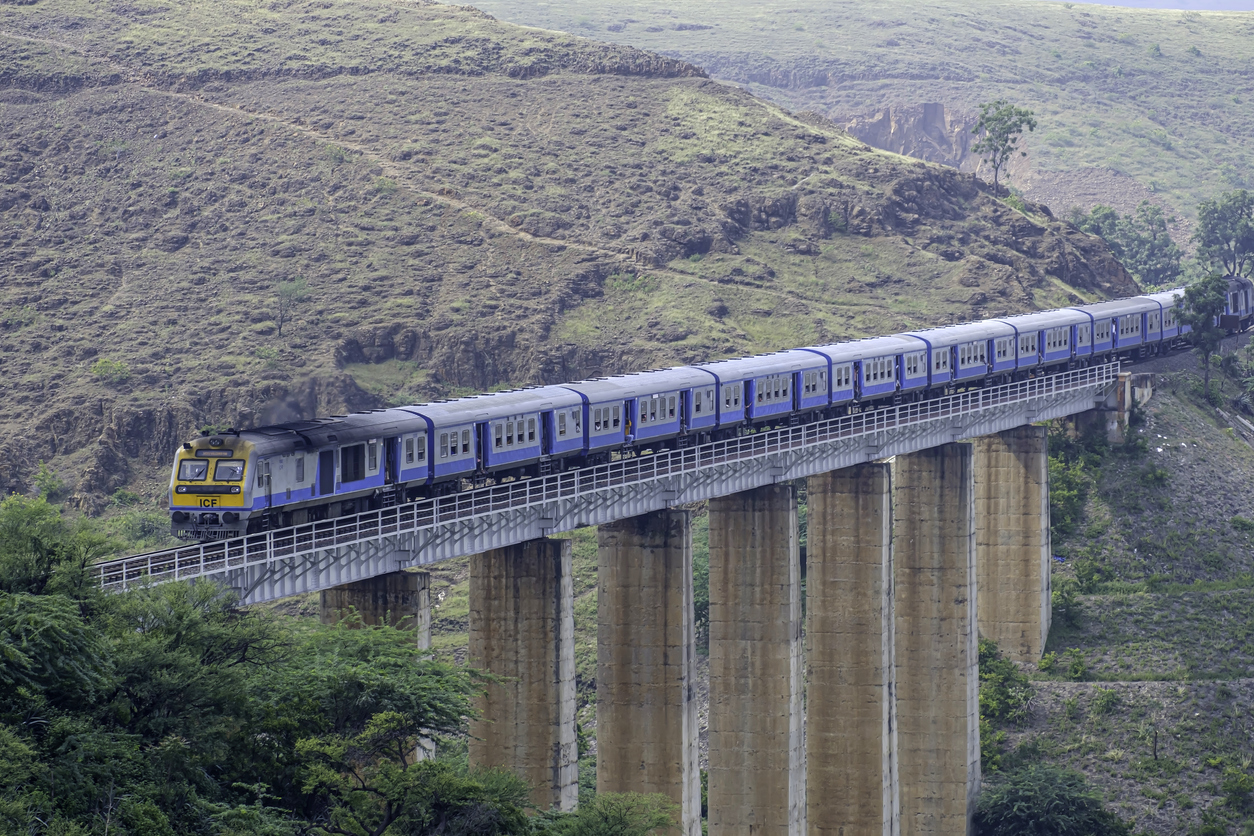
What Tejas cancellation tells us about private train dynamics

New Delhi: India’s first private train service, the Tejas Express, has been suspended due to low occupancy. Two Tejas trains had started operations – between Lucknow-Delhi and Mumbai-Ahmedabad – late last month after a seven-month gap due to the pandemic. But occupancy remained low. On an average, only about every third seat was occupied and on some days, only two in 10 seats had passengers.
Such low occupancy made operations unviable and forced the Indian Railways to suspend operations till at least December.
While the pandemic can be blamed for nearly two in three seats remaining vacant now, the occupancy of Tejas trains hasn’t been particularly high since their launch in October 2019, with at least every third seat remaining vacant even before the pandemic. India’s experiment with private trains has been a middling success so far, in at least the number of occupied seats on these trains.
Questions persist
Now, as the railways forges ahead with plans to offer 151 more trains to private parties through a two-step bidding process, experts wonder whether privatisation of train operations will achieve all that the railways has imagined. This is the first time in the IR’s century-and-a-half existence that private parties would be allowed to operate trains on select routes.
And questions abound: Will private trains bring significant incremental earnings for the cash-starved IR? Will the successful private bidders actually be able to manage viable operations and bring in the required technology as well as mega investments needed to sustain operations on the dense routes which are being put up for bidding?
The railways has laid out a roadmap for private trains, which involves successful bidders paying it a fixed premium per cluster (12 train clusters are to be bid out) for a 35-year lease. The bidder offering the maximum premium for each cluster would be chosen. The private operator will have full flexibility to fix fares but will have to pay what is known as a haulage charge to the railways for using its tracks and other services. Total investment envisaged by private train operators is nearly Rs 30,000 crore and the first such train may be operational by 2024.
Little headroom
Sudhanshu Mani, former GM at the Integral Coach Factory Chennai, pointed out that there was a lack of clarity for bidders about the demand and capacity on offered routes and this would impact their revenue streams. He also spoke of little headroom available to the private operators to charge a premium over extant fares, given the stiff competition with airlines and also because the travel time would hardly see a significant reduction.
Also read:Railways diversifies freight basket, lets fruits, grains, sugar hop on
Another possible dampener to private train operations could be the stipulation by the railways that the successful bidder pay it a premium. “The railways does not make profit today and the service itself is poor whereas a PTO (private train operator) would provide better customer experience that IR is constrained to do, employ cost-effective management, be free of political compulsions to hold down fares while delivering to IR a revenue higher than what the latter earns today…The least the PTOs would need is a reasonable return on their massive investments and workable mitigation of risks,” Mani said.
Rigid process
The private train project has reached the RFP stage now, with the IR approving the applications of nearly a dozen bidders. Another expert closely associated with the bidding process said that many of the bidders who have been shortlisted for the RFP stage find the schedule of the entire bidding process too rigid and may ask for postponement of the final bid submission dates by several months.
“Bidders have been speaking of several months needed to study each train cluster, to figure out rolling stock requirements, traffic patterns etc. In any case, all those who have cleared the RFQ stage may not put in a final bid,” the expert said.
Also read: Clone trains to reach destinations 2-3 hours before parent trains: Railways
Meanwhile, Dinesh Kotha, CEO of ConfirmTkt pointed out that the two Tejas trains operated by the IRCTC were able to generate operational profit within a month last year, despite having lower-than-expected occupancy. “Even 50% occupancy of these trains enables the operator to breakeven,” he said, since the base fare itself is high. Also, on the differential needed between the pricing for regular trains and Tejas for the latter to break even, Kotha said that even if Tejas charged 10% higher fare in some buckets, it would break even.
So will the private train project remain on track? The railways is looking at the project as a source of incremental revenue and a chance to ensure improved technology and rolling stock is deployed on these select routes. The prospective bidders would obviously want assurance on the project’s financial viability. The next few months, when shortlisted bidders conduct their own due diligence and evaluate the RFP terms by the railways, would probably provide some answers.

